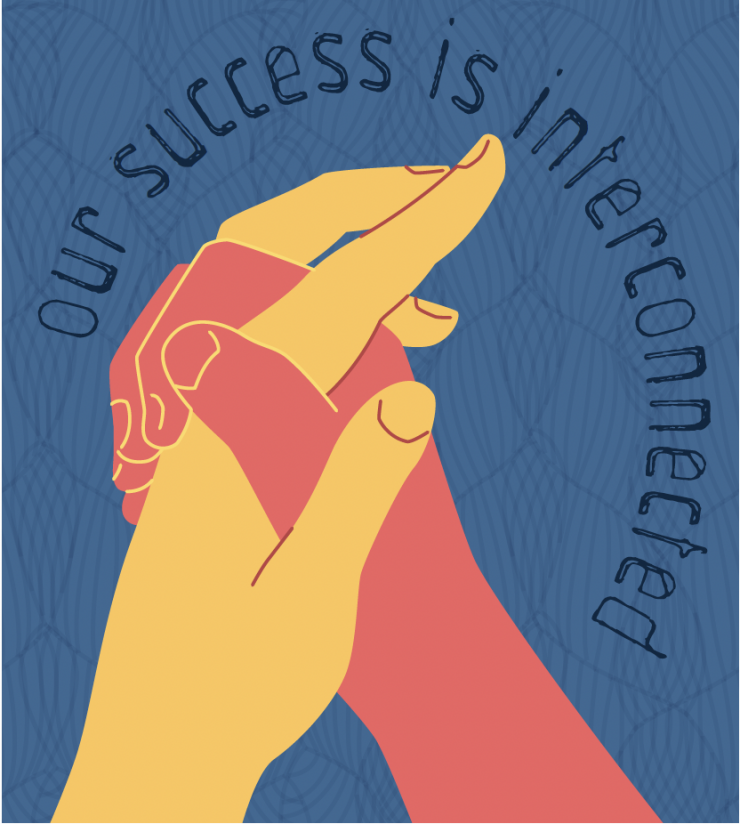EDITORIAL: CORPORATE GREED CAN COST LIVES
June 16, 2023
That’s why safe staffing matters to members.

It is an age-old story. Management
is always under pressure to cut costs to please corporate shareholders, pro- duce more profits for owners or protect bloated administrative costs. The easiest and simplest way to do that is to reduce staffing levels. Employees on the frontline are crucial to ensure high quality care for patients and residents, but we are also the most expensive. Cutting down on supplies and closing off wards will not achieve anything like the same savings that shedding employees will.
Even before the pandemic, members were constantly having to press management to fill their open positions, instead of trying to get us to do more with less and exploiting our commitment to serve our patients.
What was a serious problem before has now become a crisis, as the staff complement in too many nursing homes and hospitals has fallen well below the levels needed to provide quality care.
The stress and danger of the pandemic, combined with rates of pay in many job titles that were too low to compensate for the risks 1199 members were expected to take on a daily basis, have driven many healthcare workers out of the profession.
One of the key drivers behind the demand to reopen the contracts in the Greater New York and “Group of 65” nursing homes is members’ recognition that significant pay increases are the only way that employers can hope to recruit and retain the staff they need. (See Talks Begin at NY Nursing Homes, p. 16)
Much of the national discussion has centered around nurse-to-patient ratios. But 199ers know that low staffing in any department is problematic. If there are not enough dietary workers, for example, it means the CNAs must distribute the food trays, which means they have even less time to spend with residents, and RNs in turn, are stretched thinner too. It then becomes a vicious circle. Patients complain that staff are run off their feet and hospitals begin to receive worse and worse reviews. This eventually leads to further funding cuts and even less mon- ey available to improve staffing levels.
Providing quality healthcare, particularly for the most vulnerable in society, depends heavily on cash from Medicaid reimbursement rates which are decided at the state level. So, when 1199ers who work at institutions that belong to the League of Voluntary Hospitals and Homes won 7, 6 and 5 percent over the next three years in March at their own contract reopener, they knew that New York State would have to foot some of the bill.
That’s why members from all over the state travelled to Albany frequently to lobby hard for higher Medicaid reimbursement rates (See Mem- ber Activism Averts NY Healthcare Crisis, p. 20)
Besides raising pay, another way to address the staffing crisis is through legislation. As usual, when 1199ers spot a systemic problem with healthcare that lawmakers need to address, we come together to shine a spotlight on the issue. In New York and New Jersey our member action won safe-staffing laws. We are now turning our attention towards ensuring that they are vigorously enforced.
.At the national level Senator Sherrod Brown and Congressman Jan Schakowsky, have an- nounced they are reintroducing the Nurse Staffing Standards for Hospital Patient Safety and Quality Care Act, which would also protect nurses who speak out against unsafe staffing standards. And President Biden launched a process through the Centers for Medicare and Medicaid Services to is- sue the first-ever nationwide regulation on nursing home staffing.
Corporations and the ultra-wealthy can afford to pay lobbyists to influence elected officials, and so the forces arrayed against us our powerful. But we have made significant progress by mobilizing in numbers and telling the truth about the impact of understaffing on quality of care. Now, we must continue the struggle.
1199 Magazine: May / June 2023

